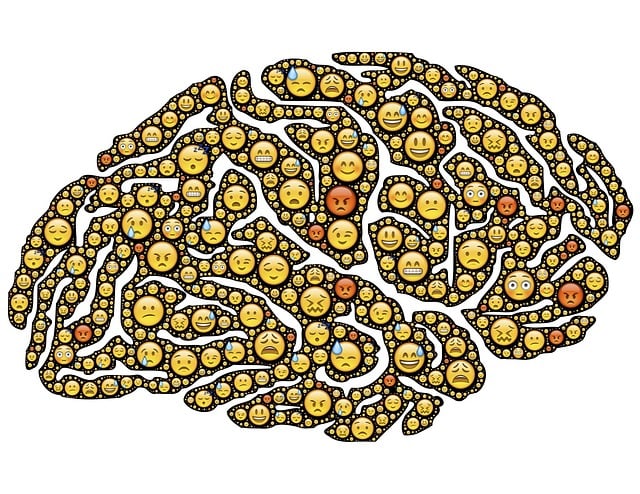Family psychotherapy is a comprehensive, evidence-based approach that addresses complex emotional issues within households by engaging all family members. Through techniques like structural family therapy and narrative therapy, therapists help resolve conflicts, improve communication, and strengthen relationships. This collaborative process empowers families to navigate challenges collaboratively, leveraging their unique perspectives and inherent strengths. Cultural sensitivity ensures accessible mental health services for diverse populations, integrating traditional healing practices to foster safe and supportive environments. By creating a non-judgmental space and employing tailored techniques like CBT, family therapists address individual needs while maintaining the integrity of the family system. Online resources guide individuals through the process, offering insights, success stories, and expert opinions, while websites facilitate the search for qualified therapists in local areas. Embracing family psychotherapy is a proactive step towards positive change and seeking support is a testament to strength.
Family psychotherapy is a comprehensive approach to understanding and improving complex relationships within families. This therapeutic model recognizes that mental health issues often arise from, or are exacerbated by, family dynamics. By focusing on communication, conflict resolution, and emotional support, mental health professionals facilitate positive changes in family interactions.
This article explores various aspects of family psychotherapy, including its benefits for individual mental health, cultural sensitivity, challenges faced by therapists, and resources for those seeking to understand and access this valuable treatment option.
Understanding Family Psychotherapy: A Comprehensive Approach

Family psychotherapy is a comprehensive approach designed to help families navigate and resolve complex emotional issues. It recognizes that mental health isn’t solely an individual concern but is deeply intertwined with family dynamics. By engaging all family members in the therapeutic process, this method identifies and addresses patterns of communication, behavior, and interactions that may be contributing to conflicts or challenges within the household.
This holistic approach aims to improve family relationships, enhance communication, and foster healthier ways of managing emotions and resolving problems. Family therapists create a safe space where each member can express their feelings, needs, and concerns openly. Through various evidence-based techniques, they help families develop coping strategies, build resilience, and promote understanding, ultimately leading to improved mental health for every individual within the family system.
The Role of Mental Health Professionals in Family Therapy Sessions

In family psychotherapy sessions, mental health professionals play a pivotal role in facilitating open communication and resolving conflicts among family members. These experts bring a range of skills and knowledge to the table, enabling them to guide families through complex emotional landscapes. Through techniques like active listening, they help each family member express their thoughts and feelings safely, fostering an environment of trust and understanding. Mental health professionals also employ various therapeutic approaches tailored to the unique needs of each family, promoting positive changes and stronger relationships.
The presence of a trained mental health psychotherapist ensures that family therapy sessions remain structured, productive, and non-judgmental. They help families identify unhealthy patterns and offer strategies for healthier interactions. By addressing individual needs within the familial context, these professionals contribute to improved mental well-being for every member, ultimately enhancing the overall resilience and harmony of the family unit.
Identifying Issues and Strengths Within Family Dynamics

Family psychotherapy involves a deep dive into the intricate dynamics that shape each family unit. By examining interactions and relationships, therapists can identify both issues and strengths within the system. This process allows for a nuanced understanding of the family’s unique challenges and resiliencies. Through open communication and collaborative problem-solving, families can uncover underlying conflicts, improve communication patterns, and develop healthier ways of managing emotions.
In mental health psychotherapy, the focus shifts to addressing specific concerns that impact the overall well-being of family members. Issues such as conflict resolution, parenting challenges, or individual struggles may be at the forefront. Therapists facilitate conversations that bring these issues to light, encouraging every family member to share their perspective. By recognizing and valuing each person’s unique experiences and perspectives, families can build upon their strengths to navigate and overcome difficulties together.
Techniques Used in Family Psychotherapy to Improve Communication

Family psychotherapy employs a range of techniques designed to improve communication and understanding within families. One common approach is structural family therapy, which focuses on identifying and modifying dysfunctional patterns of interaction. This involves setting clear boundaries, establishing more effective roles within the family unit, and enhancing overall organization. By doing so, it aims to improve communication flows and reduce conflicts.
Another powerful tool in family psychotherapy is narrative therapy. This technique encourages family members to tell their stories from different perspectives, helping them recognize and reframe negative narratives. It promotes empathy and understanding by allowing each individual to express their feelings and experiences. This process facilitates open dialogue, strengthens familial bonds, and ultimately fosters better mental health and well-being for all involved.
How Family Therapy Helps Address Individual Mental Health Concerns

Family therapy is a powerful tool for addressing individual mental health concerns within a familial context. By involving all family members, therapists create a safe and supportive environment where each person can express their feelings and work through challenges together. This collaborative approach allows for a deeper understanding of intergenerational patterns, communication dynamics, and the unique roles each family member plays in shaping mental well-being.
Through various therapeutic techniques, family therapy helps identify and resolve conflicts, improve communication, and enhance emotional connections. It empowers individuals to develop coping strategies, build resilience, and gain insights into their personal contributions to the family’s overall mental health. This holistic approach not only supports the person with immediate mental health concerns but also strengthens the family system as a whole, fostering a more nurturing and supportive environment for everyone involved.
Benefits of Group Family Psychotherapy for Diverse Families

Group family psychotherapy offers a unique and beneficial approach for diverse families seeking improvement in their mental health. By bringing multiple family members together, this therapeutic setting fosters an environment where each member can gain valuable insights while witnessing the experiences of others. This not only encourages understanding and empathy but also allows for a collective focus on shared goals.
One of the key advantages is the opportunity for siblings or extended family members to interact and support one another throughout the process. Group therapy sessions provide a safe space to explore dynamics, resolve conflicts, and enhance communication patterns within the family unit. Moreover, it empowers families to develop effective coping strategies collectively, strengthening their overall resilience against mental health challenges.
Integrating Cultural Sensitivity into Family Therapy Practice

Incorporating cultural sensitivity into family therapy is paramount, as it ensures that mental health services are accessible and effective for diverse populations. Family therapists must recognize and appreciate the unique values, beliefs, and practices that different cultural groups bring to the therapeutic setting. This approach, often referred to as culturally competent therapy, allows professionals to understand and respect clients’ backgrounds, fostering a safe and supportive environment. By integrating cultural sensitivity, therapists can avoid assumptions and stereotypes, instead tailoring their practices to meet the specific needs of each family.
Culturally sensitive family psychotherapy involves active listening to clients’ stories, understanding their context, and adapting therapeutic techniques accordingly. This may include incorporating traditional healing practices, respecting familial structures different from mainstream norms, and addressing intergenerational trauma. Such an approach promotes genuine connections, enhances engagement, and improves outcomes in mental health psychotherapy, ensuring that every client receives personalized care.
Challenges Faced by Family Therapists and Strategies to Overcome Them

Family therapists often encounter a unique set of challenges due to the dynamic nature of family relationships. One significant hurdle is facilitating open and honest communication among all family members, especially when conflicts are deep-seated or sensitive topics are involved. Privacy concerns, where families may be reluctant to share personal struggles, can hinder progress. Overcoming this requires therapists to build a safe, non-judgmental environment, ensuring confidentiality to encourage family members to express their thoughts and feelings freely.
Another challenge is managing the individual needs of each family member while keeping the family system intact. Every family dynamic is different; some may have underlying mental health issues that require tailored strategies. Therapists need to be adept at tailoring their approach, incorporating various psychotherapy techniques like cognitive-behavioural therapy (CBT) or systemic family therapy, to address specific problems effectively without disrupting the family’s cohesion.
Resources and Next Steps for Exploring Family Psychotherapy

Family psychotherapy offers a comprehensive approach to addressing the unique challenges within families, fostering healthier dynamics and improving overall well-being. For those considering this path, there are numerous resources available to explore and navigate this therapeutic journey. Online platforms provide a wealth of information, offering insights into different therapeutic models, success stories, and expert opinions on various mental health psychotherapy techniques. Many websites also list qualified family therapists in your area, making it easier to find professionals who align with your needs.
The next steps involve reaching out to potential therapists, scheduling initial consultations, and discussing specific concerns. It’s essential to find a therapist with whom you feel comfortable and who has experience working with families facing similar issues. Many practices offer free or low-cost sessions as an introduction, allowing you to gauge the fit before committing to long-term therapy. Remember, exploring family psychotherapy is a proactive step towards positive change, and seeking support is a sign of strength.
